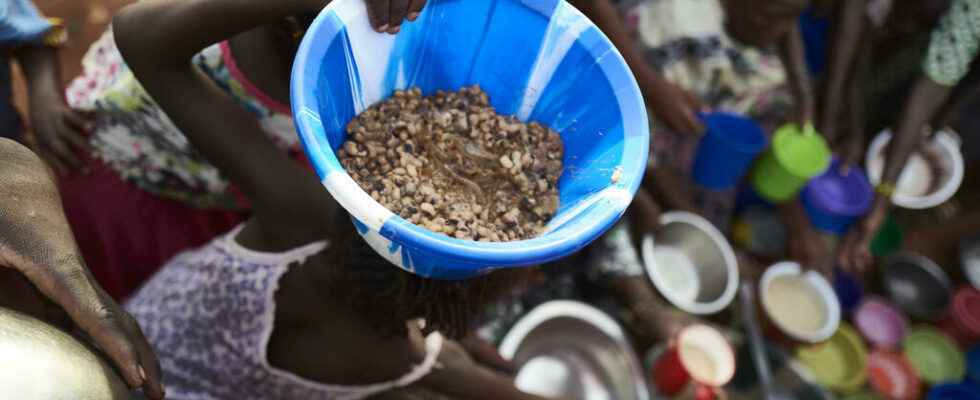The Summit of Heads of State of the African Union opens for two days this Friday, May 27 in the Equatoguinean capital.
With our special correspondent in Malabo, Peter Sassou Dogbe
Today’s summit opens as the humanitarian crisis has worsened in recent years. Of Africa’s 1.4 billion people, about 282 million suffer from undernourishment. This is 49 million more Africans than in 2019, according to the United Nations Food and Agriculture Agency (FAO).
An aggravation due, in particular in the regions of the Sahel and the Horn of Africa, to the climate changeto jihadist terrorismbut also to community conflicts.
In the document which will be submitted to the Heads of State and which RFI was able to consult, we can read: the prolonged increase in humanitarian needs and the displacement of populations are due, among other things, to armed conflicts, the growing effects of climate change, terrorism and violent extremism. » Armed conflicts are identified as being partly responsible for humanitarian crises that are a source of insecurity and destabilization. They pose a threat to development programs by disrupting livelihoods and social safety nets, the document says. The text adds that the most vulnerable such as women, the elderly and children are drawn into population movements which generate new forms of humanitarian crises.
Added to this in recent months, the Ukrainian crisis and the rise in food prices. About 113 million Africans are in need of humanitarian assistance this year, African Union commission chairperson Moussa Faki Mahamat said at the opening of the ministers’ meeting on Wednesday.
Africans must absolutely mobilize to resolve this humanitarian crisis, said Aïssatou Tall Sall, the head of Senegalese diplomacy on the sidelines of the summit.
Proposals will be submitted to Heads of State today, including the creation of an African humanitarian agency and the establishment of a special emergency fund, fed by member countries.
Remedies must be found by addressing the root causes of these conflicts finally summarizes the document, which emphasizes post-conflict recovery and reconstruction efforts such as the demobilization, disarmament and reintegration of former combatants, as well as the return of displaced persons and reconciliation.
For Rémi Hémeryck, head of the SOS Sahel organization which advocates food independence, States must above all involve all actors upstream and coordinate actions.
We can easily increase agricultural production so that we are no longer dependent on imports from other regions, from other neighboring states. You have to create long-term investments, this is perhaps the most complicated […] What is expected of Heads of State is that all these policies be coordinated […]
